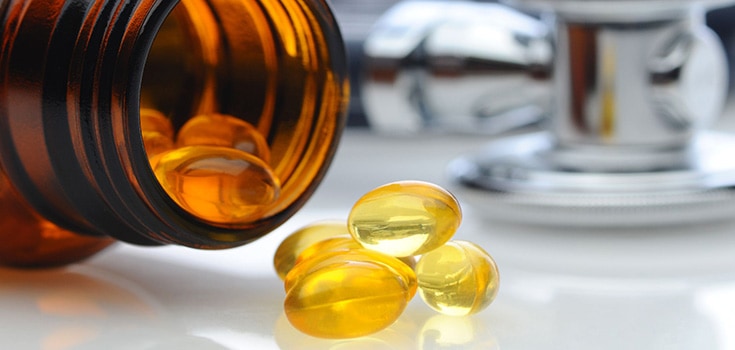Report Finds Vitamin D Supplements to Contain 9-146% of Amount on Label

Most people who ascribe to a healthy lifestyle have some knowledge of how to read labels. It’s important to know how to read the ingredients label on a packaged food or a label on a supplement so that you’re not blindly ingesting ingredients that may not be safe. But one thing that consumers don’t have much control over is whether the manufacturer or company is delivers what’s promised on the label. For example, one recent study involving vitamin D supplements found that many brands significantly under-deliver or even over-deliver on dosage.
Vitamin D Supplement Labels not Always Accurate
According to the Research Letter, published in JAMA Internal Medicine, bottle labels on vitamin D supplements aren’t always accurate. As a matter of fact, sometimes they are way off.
Vitamin D supplements sold over the counter may have as little as 9% or as much as 146% of the vitamin D that their labels imply.
“We were surprised by the variation in potency among these vitamin D pills,” said lead author Erin S. LeBlanc, MD MPH from the Kaiser Permanente Center for Health Research. “The biggest worry is for someone who has low levels of vitamin D in their blood. If they are consistently taking a supplement with little vitamin D in it, they could face health risks.”
Fortunately, the researchers found a way for consumers to lessen their risk of getting mislabeled vitamin D. They say to look for the USP (US Pharmacopeial Convention) label on supplements. In order to use this label, supplement manufacturers have voluntarily allowed their products to be tested for things like purity and potency. And among those with the USP label, researchers say, deviations from the labeled potency was less pronounced.
“The USP verification mark may give consumers some reassurance that the amount of vitamin D in those pills is close to the amount listed on the label,” explained Dr. LeBlanc. “There are not many manufacturers that have the USP mark, but it may be worth the extra effort to look for it.”
Another important factor to remember when searching out vitamin D supplements is the difference between D3 (cholecalciferol) and D2 (ergocalciferol). Both are sold as vitamin D supplements, though D3 is, on average, 87% more potent than D2. Vitamin D2 could also pose a risk to your health.
Why? Because D3 is naturally synthesized in the body. It is generated by the sun and occurs naturally within us. D2, on the other hand, is the vitamin D added to “enriched” and “fortified” foods.
It’s unfortunate that supplements may not deliver what the label says, but this study reminds us that labels may not always be accurate, and not all companies are trustworthy.
Additional Sources:

Listing the manufacturers and products would have been much more helpful. This article serves to breed reservations for vitamin D.
Date of study was 2011…not current. and who paid for the study? a univ. connected to whom? i.e. And, it the USP LABEL A PHARMA BRANDS…hello
My supplements are exclusively by Jamieson – a Canadian company. Haven’t heard any negative things about them online or elsewhere but hopefully they’re ethical and honest in their manufacturing & labeling practices.